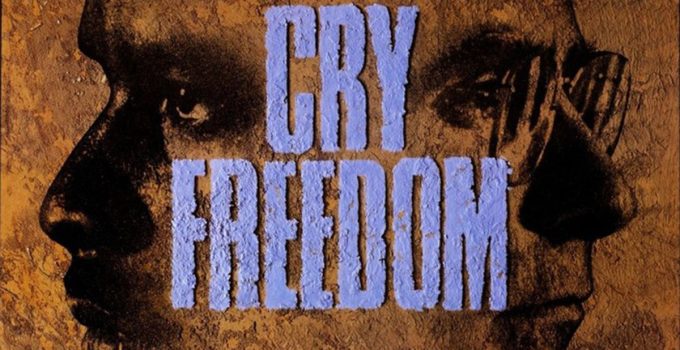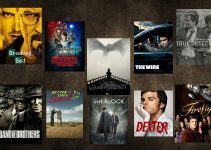Cry Freedom (1987) – 8.25/10 – Cry for freedom, a cry for justice
Overall
Cry Freedom is a biographical drama based on the true story of the South African apartheid era. Richard Attenborough is known for directing brilliant, timeless biopics like GANDHI (1982), CHAPLIN (1992), and A BRIDGE TOO FAR (1977). He does it here in another classic. When the politicians and law enforcement themselves are thugs, how does one fight the system? This film depicts the daring account of Donald Woods, a journalist from South Africa and later an anti-apartheid activist, who shows one way. He published a book called Biko in 1978, which details the ideas of his friend, political activist Steve Biko, who led a nonviolent freedom movement for racial equality and a joint culture that lived in peace. The South African government was busy quashing those who rose against apartheid, and they attempted to stop Woods from leaving. Woods published his book after he escaped South Africa with his family, and it garnered global acclaim when he presented his story before the UN. The themes covered include discrimination, hate, corruption, human rights, friendship, redemption, and justice. The most important lesson is that freedom isn’t free. Those wielding power will do everything to hold on, and change happens when people inside and outside fight for it. My rating is 8.25/10.
Plot (spoiler-free)
In 1977, South African freedom activist Steve Biko (Denzel Washington) led a movement against apartheid, which had divided the black and white populations. The chief editor of “Daily Dispatch” in South Africa, Donald Woods (Kevin Kline), writes damning news stories criticizing Biko and the movement for equal rights, calling it a violent black nationalist movement. A local doctor, outraged at Woods, challenges him to meet Biko in person rather than resorting to rumors and the word of local politicians and law enforcement. After Woods meets Biko, he learns Biko’s views and nonviolent ideology from him. Meeting Biko shatters Woods’ worldview, and he becomes drawn into the struggle. He understands that the state police and state news propaganda had twisted everything for their benefit, making Biko look like a violent monster. Woods publishes articles that detail and defend Biko’s struggles. Afterward, the police arrest Biko and torture him to death. They also place Woods under house arrest and strip his editor job. Woods must investigate his friend’s death and decide his next move.
Technicals
Cry Freedom is a solid movie, both technically and as entertainment. The acting, writing, cinematography, locations, authentic music, and direction are superb. The performances from a talented cast felt authentic from start to finish, particularly Kline and Washington. As Washington’s first major Hollywood film, his performance as Biko is incredible. Several scenes aim to elicit sympathy, and they succeed. Attenborough is famous for scenes that employ massive crowd gatherings, and he does it successfully here again. The music is admirable and gives a South African vibe. I was unfamiliar with Steve Biko and South Africa’s history before the end of apartheid. This movie covers much of that. However, there should have been more exploration of Biko’s role. We know little about how he began or what inspired his views. He becomes almost a side story instead of the focus. The same goes for Woods, but his past is irrelevant to the story. Second, the pacing in the second half slowed. While watching Kline escape South Africa was riveting, there were several unnecessary, drawn-out scenes and shots leading up to it. Those could use sharper editing.
Trivia Tidbits
Most of what the filmmakers shot follows the actual timeline of events. They consulted the real-life Woods and his wife, Wendy, to cling to the actual story. They were to film in South Africa, but the South African security placed the crew under surveillance after the crew interviewed Nelson Mandela in prison. It forced the filming team to move to Zimbabwe, where they could film without interference from law enforcement and government. While South Africa’s censor board approved the movie uncut, the police seized copies and temporarily blocked the distribution. Similar to Gandhi, this film was expected to perform well at the Oscars, but it fell short. It received nominations for Best Supporting Actor (Denzel Washington), Best Original Music Score, and Best Original Song, but it did not win any.
Would I recommend this?
Indeed, I recommend this movie. It’s fascinating to watch the events of a freedom movement play out, even if they may be heartbreaking. Much has changed in South Africa since the release of Cry Freedom in 1987. In 1990, the leaders released Nelson Mandela from prison. In 1994, the South African people voted Mandela as president, and apartheid ended.
*Obtained trivia facts from IMDb’s trivia page and plot/basic history/name information from Wiki




